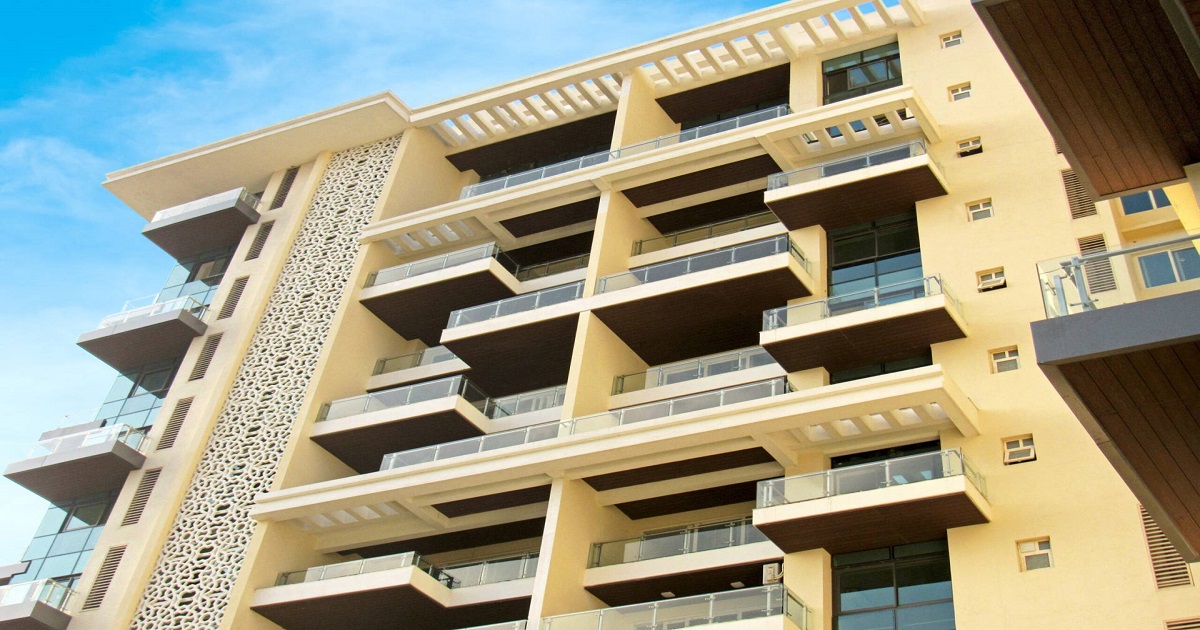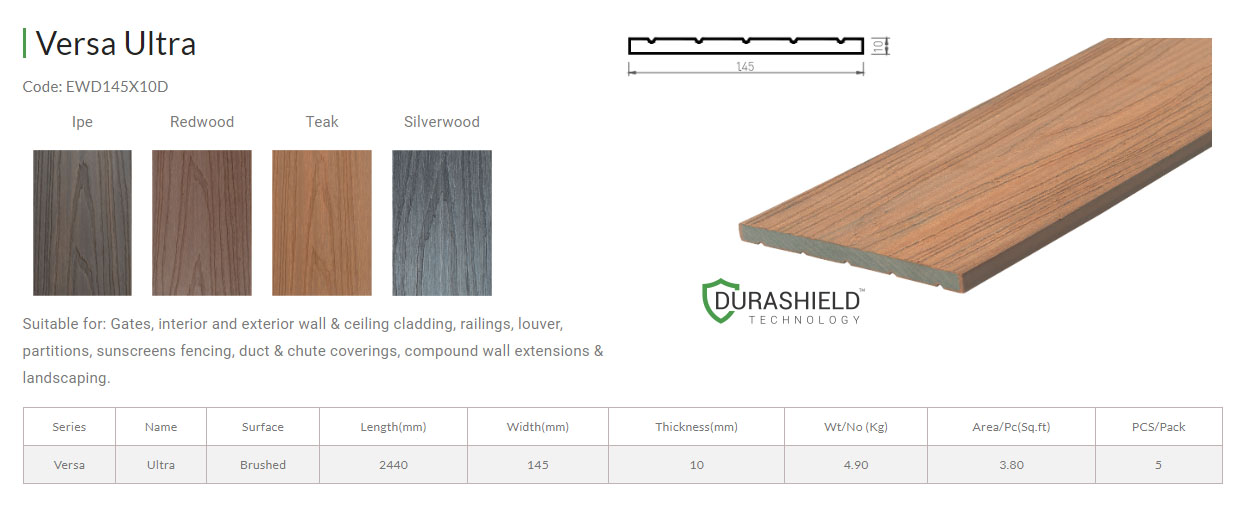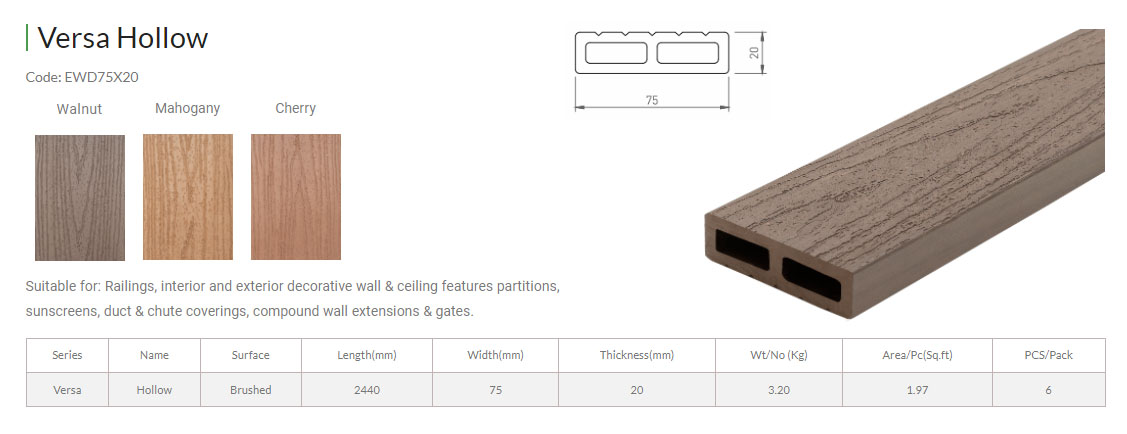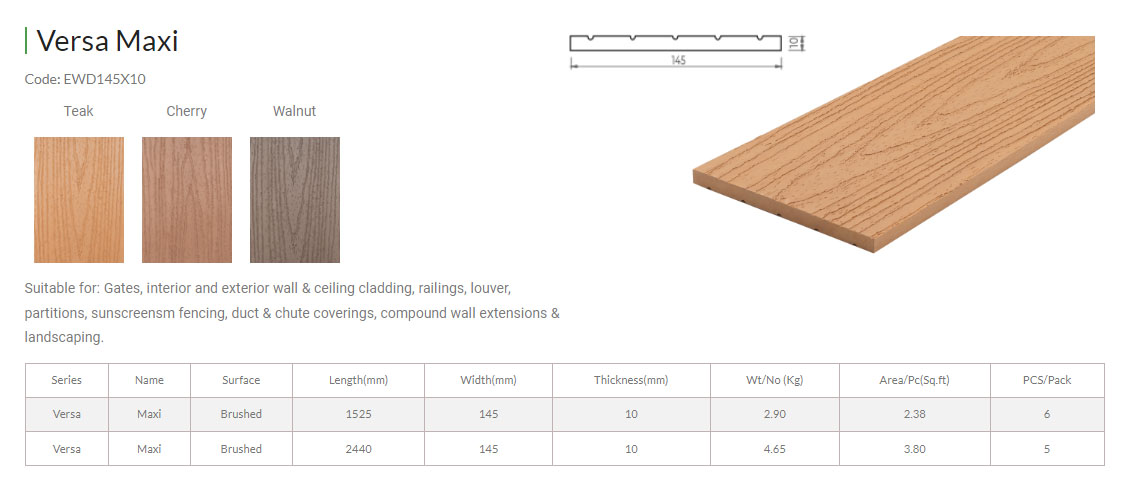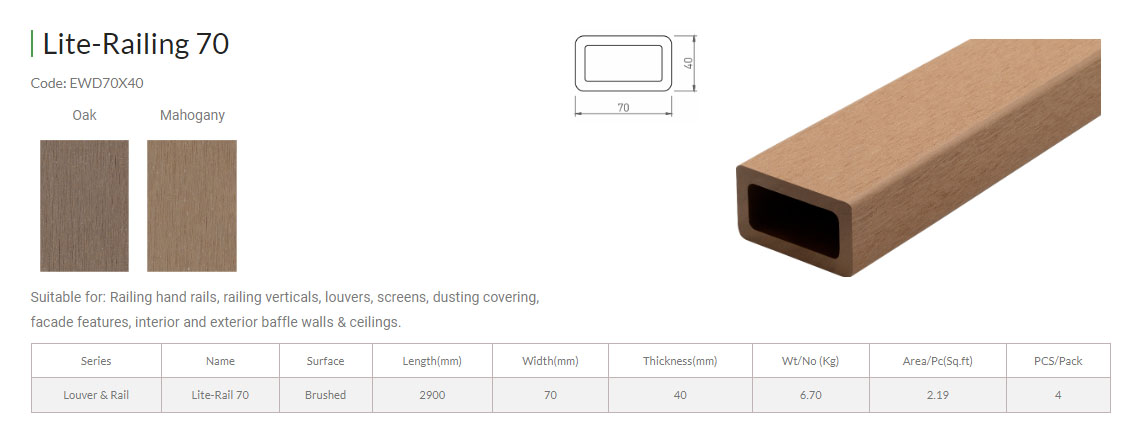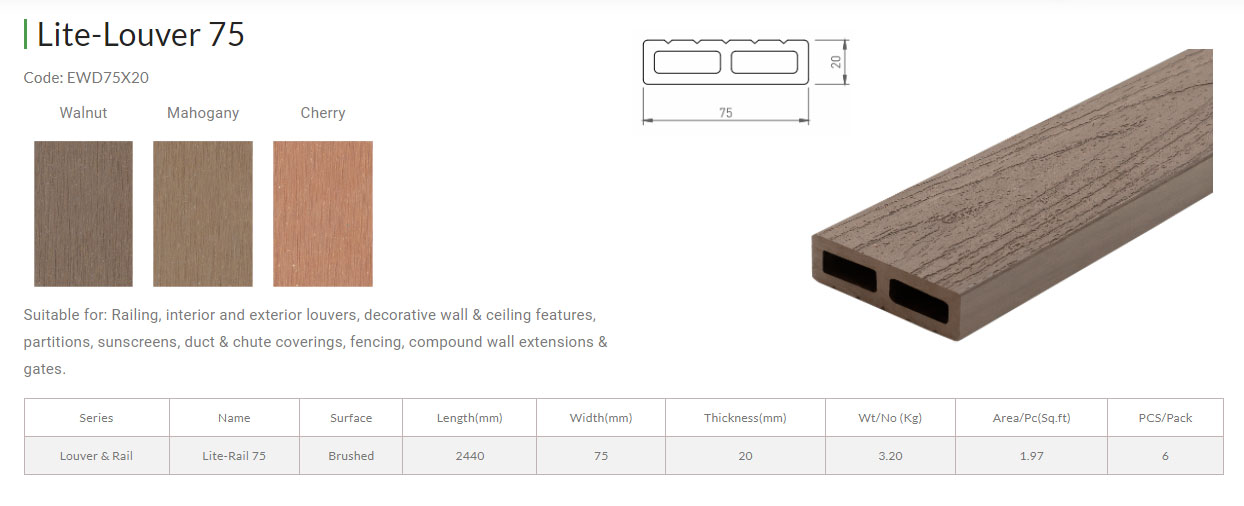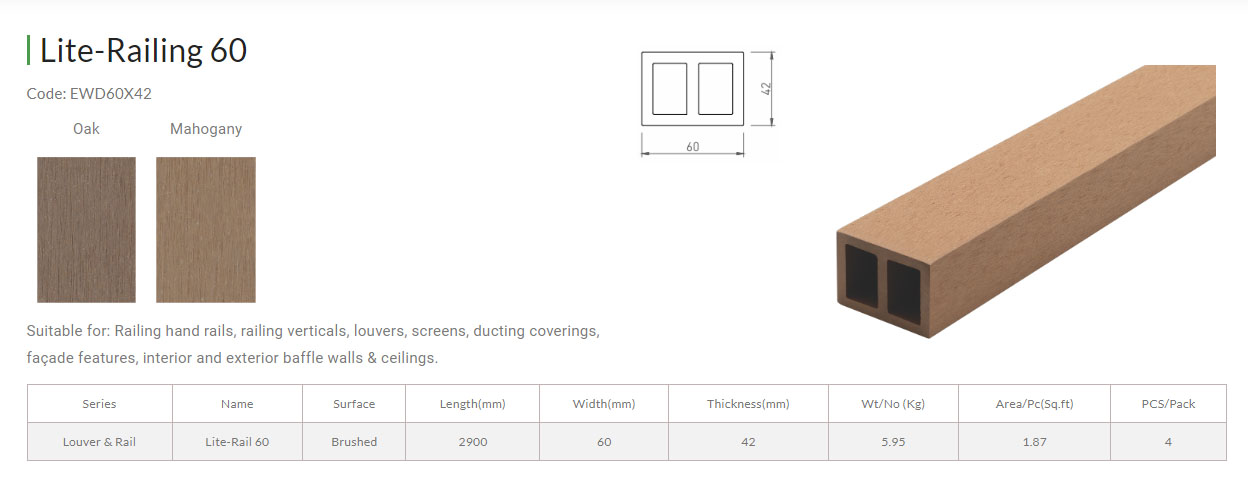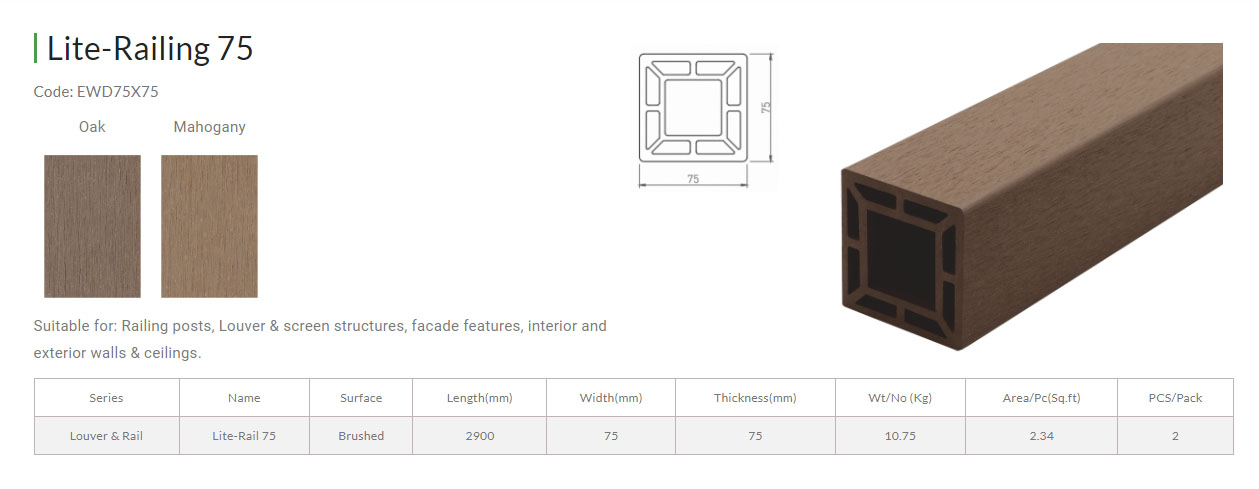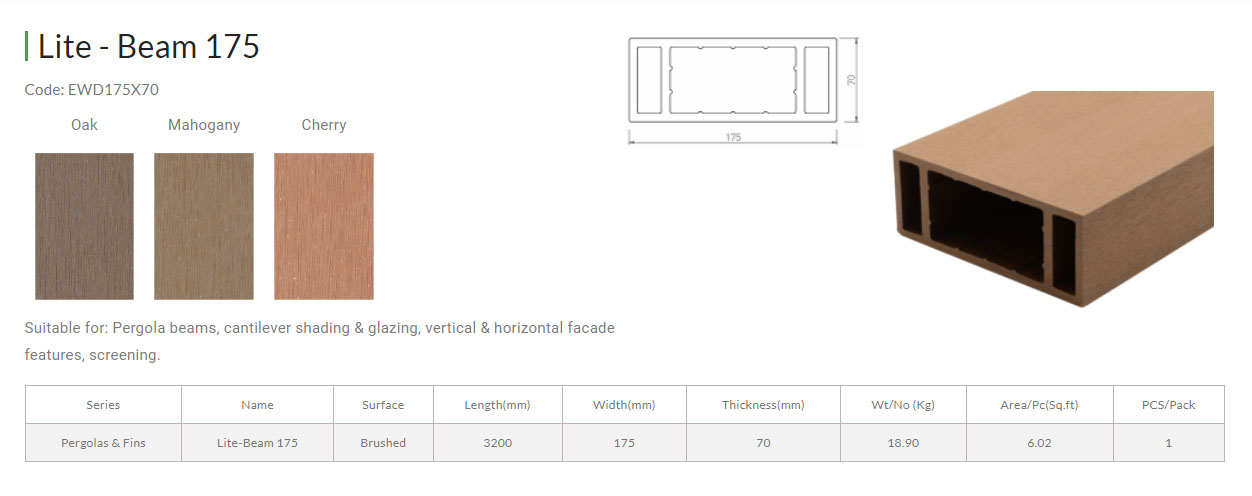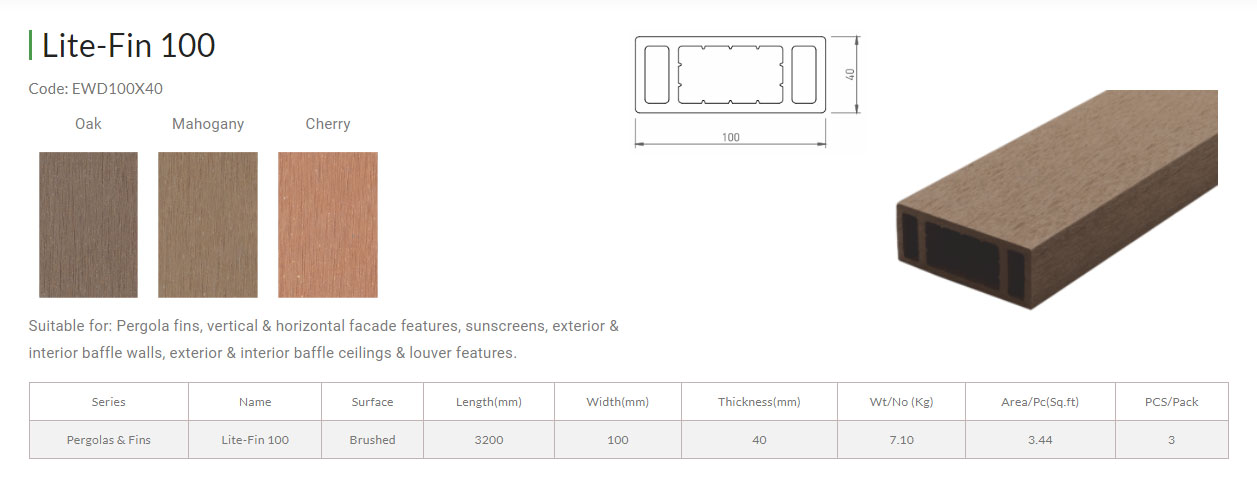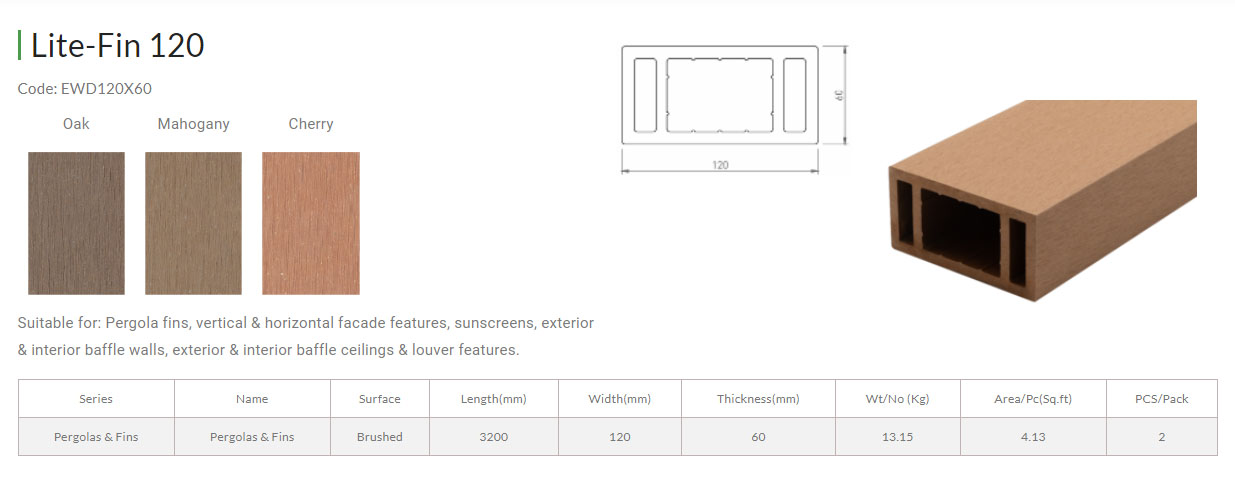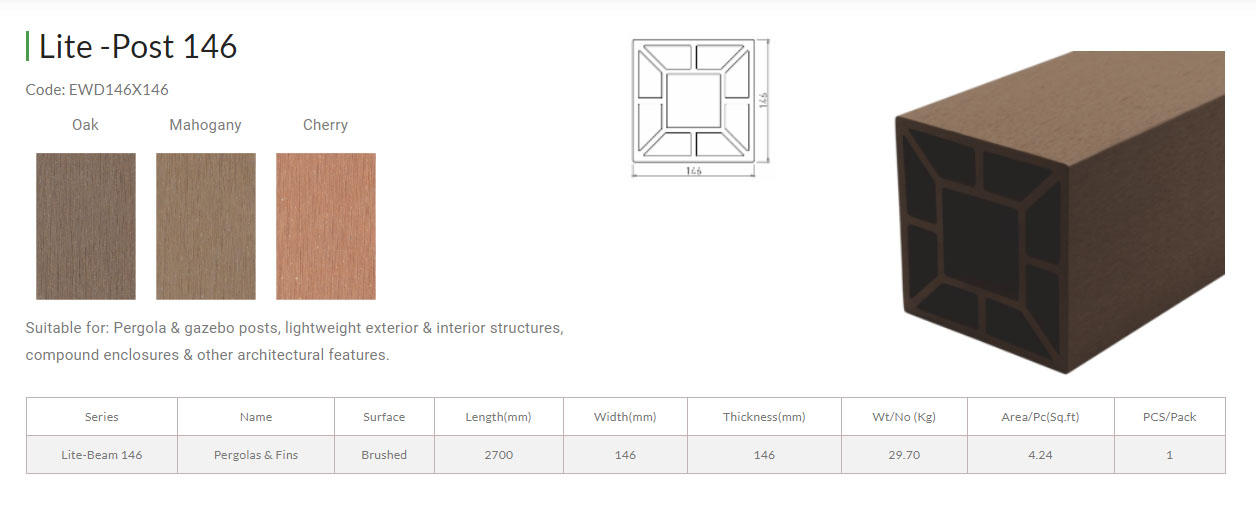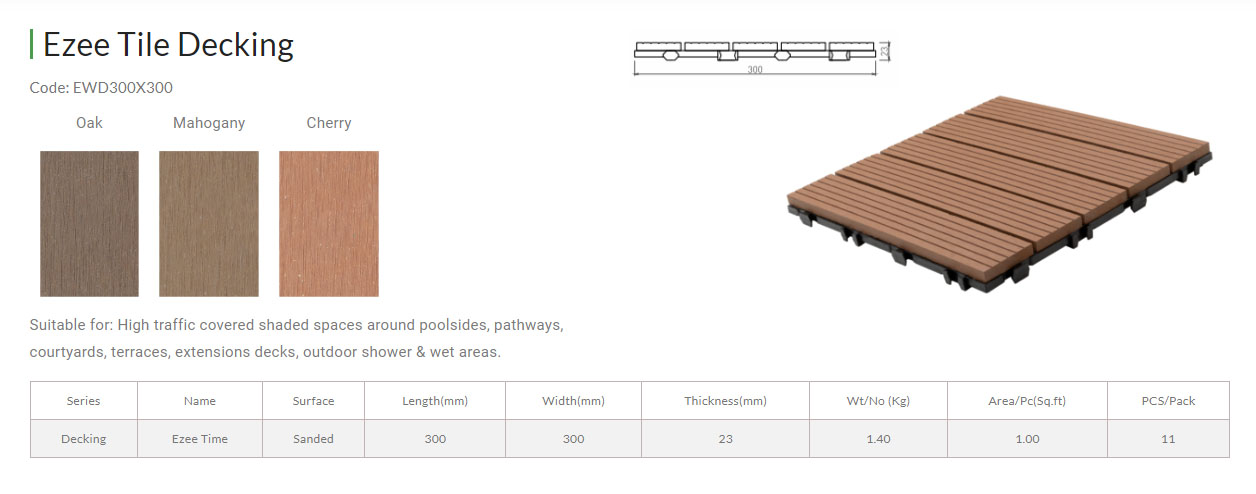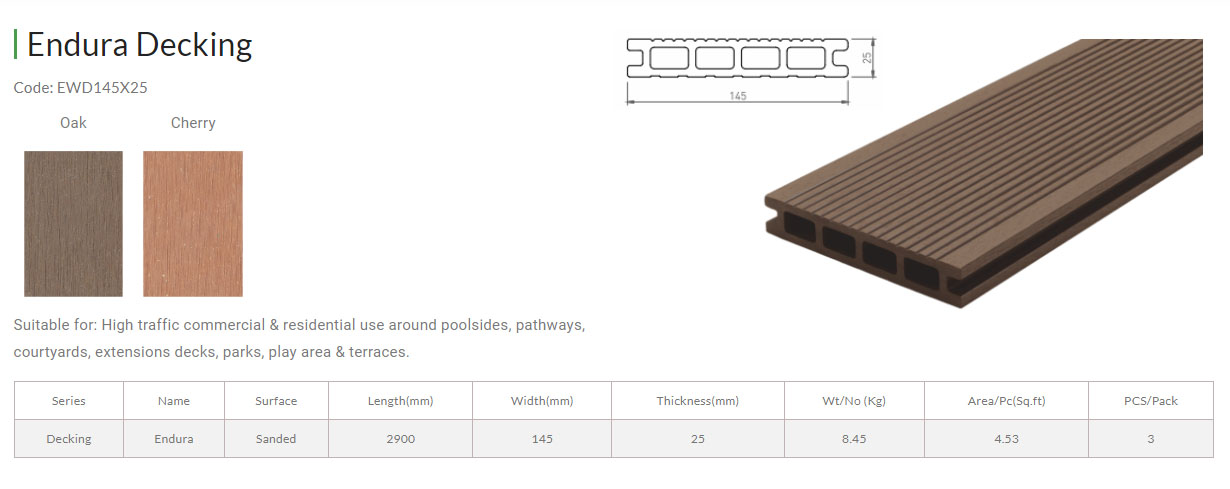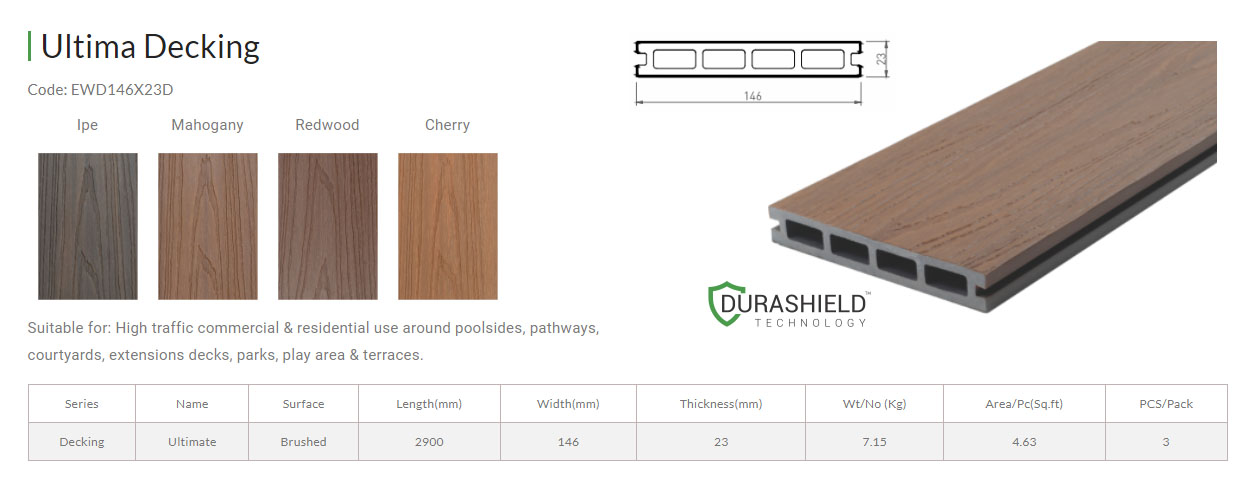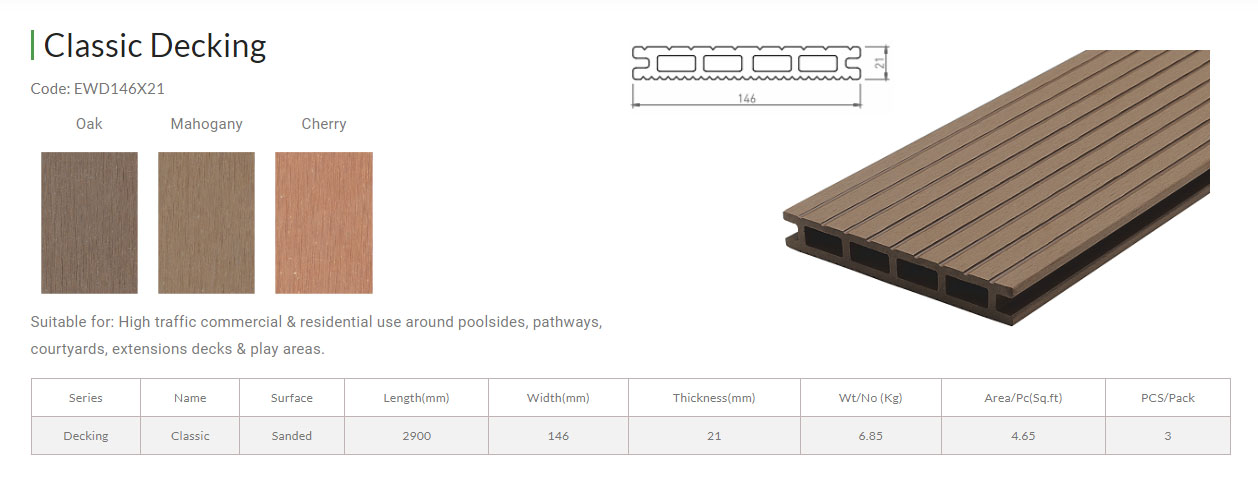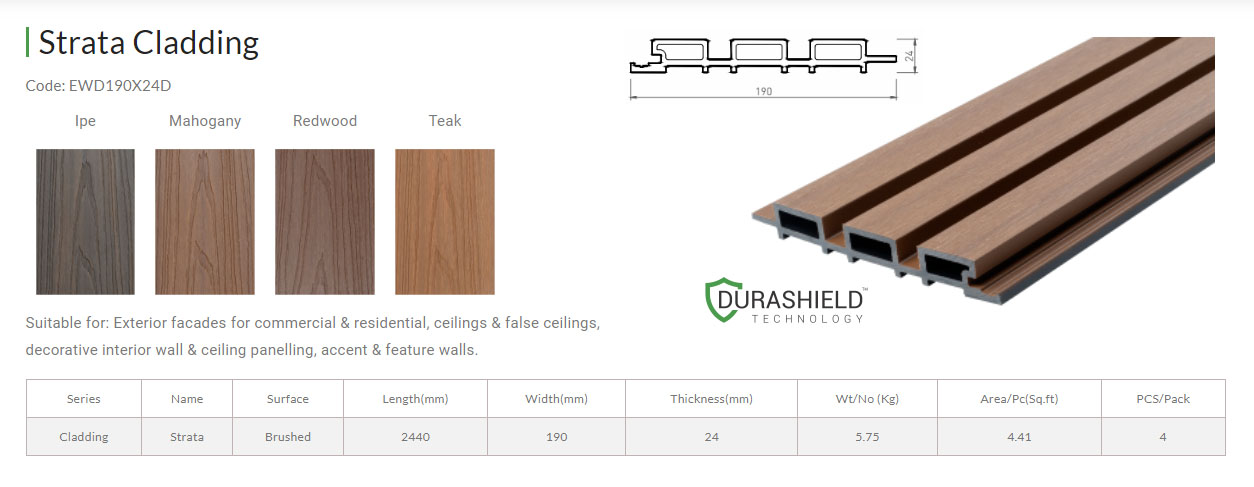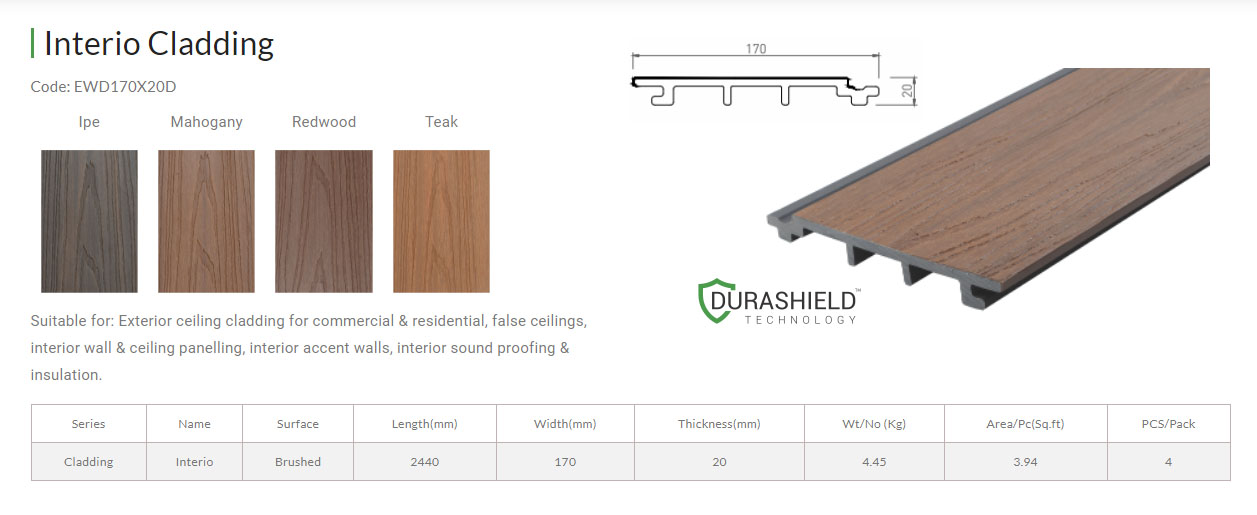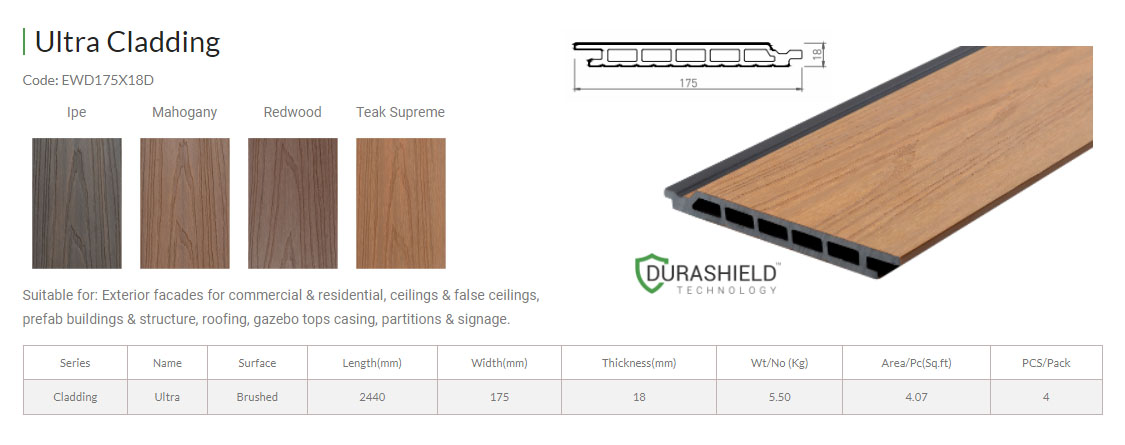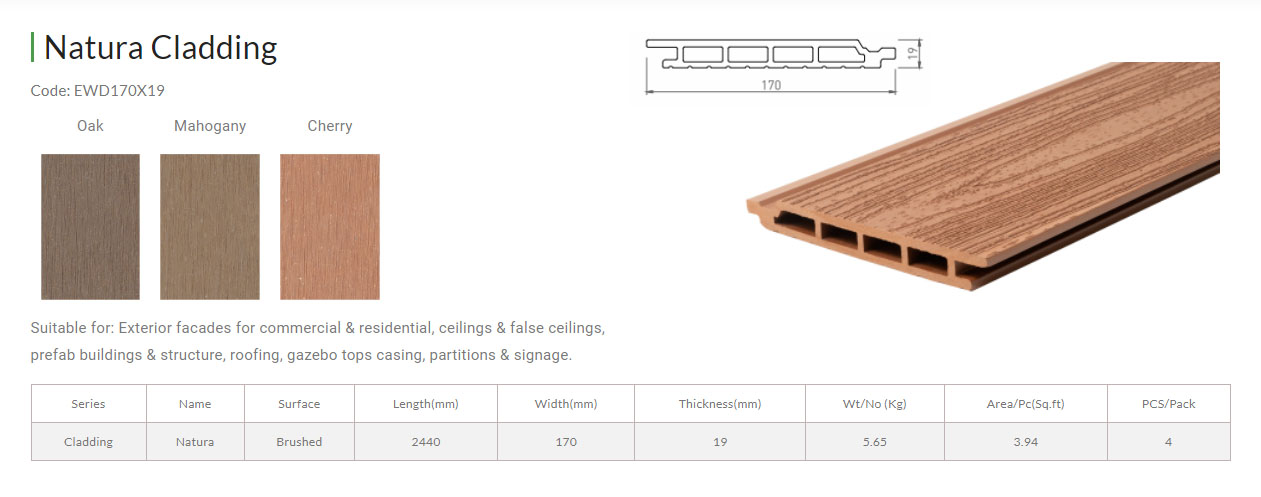Exterior wall cladding is the architectural element that adds strength and enhances the exterior appearance of your building. This element majorly influences the first impression that your visitors have of the building. Natural wood has been used traditionally for exterior wall cladding. While traditional wood offers class and beauty, it is highly susceptible to exterior weather conditions. WPC is an innovative and cutting-edge material that is highly weather-resistant, durable, and versatile offering premium aesthetics.
Traditional Wood Vs WPC
The earthy appeal and elegance of traditional wooden panels make them a popular choice for external wall cladding. With aging, the appearance of wooden exterior wall cladding planks can be maintained with regular sanding. However, moisture conditions affect wood, resulting in swelling, warping, and rotting. Without periodic maintenance, wooden planks on exterior walls are vulnerable to fading, cracking, termite attacks, and eventual rot.
WPC is similar to wood in appearance but has excellent weathering capability and resistance to moisture, UV, termites, and rot. WPC wood panels retain their good looks for many years without any maintenance or surface coating.
As a material, WPC is more eco-friendly. Mass production of natural wood wall cladding panels results in waste and depletion of forest resources. On the other hand, WPC is made from wood powder and recycled plastic, minimizing the depletion of virgin wood.
On the cost front, traditional wooden wall cladding panels may be less expensive than WPC wood panels with respect to the initial cost. However, in the long term, WPC is more cost-effective as it does not involve the heavy maintenance expenses that wood calls for.
Why Is WPC a Good Choice for Exterior Cladding
WPC offers the premium appearance of wood, combined with high material strength and exceptional longevity. It is highly durable under all weather conditions. In addition, it is waterproof, UV-resistant, and resistant to fading, impact, and corrosion.
WPC is also environmentally friendly, fire retardant, and termite-proof. As WPC is a composite of wood and polymers, its density and strength are much higher than those of wood. WPC has a higher screw-holding capacity, which is an important parameter that defines the strength of a material.
WPC Is Versatile for Exterior Cladding
WPC cladding Panels offers a diverse array of vibrant colors, detailed textures, and elegant finishes, allowing designers and users to unleash their creativity. You can use WPC wall panels for accents, features, signage, and soffit surfaces. These panels help create bespoke and durable facades. You can combine WPC cladding panels with other materials to create excellent visual appeal.
Everwood WPC Wall Cladding Panels
Everwood, the leading WPC brand, offers high-quality WPC wall cladding panels in various colors and textures. These panels combine natural wood aesthetics with strong weather resistance. They are highly UV stable and fade resistant, retaining their vibrant colors for a long time. The panels are easy to install using an aluminum framework, enhancing the visual appeal of buildings for years.
Conclusion
Your ultimate choice of material for external wall cladding should be based on factors such as durability, aesthetic appeal, weathering capability, maintenance requirements, cost factor, and environmental impact. Choosing a material that best suits your personal needs and preferences will ensure that your exterior walls look stunning and remain that way for years to come.


